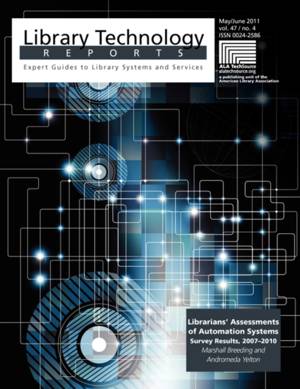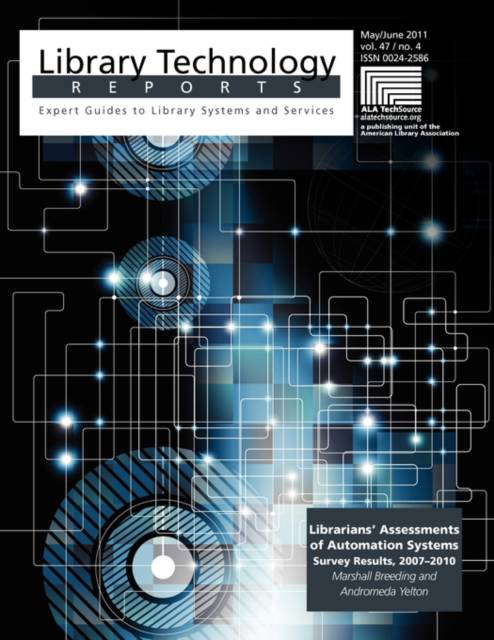
- Afhalen na 1 uur in een winkel met voorraad
- Gratis thuislevering in België vanaf € 30
- Ruim aanbod met 7 miljoen producten
- Afhalen na 1 uur in een winkel met voorraad
- Gratis thuislevering in België vanaf € 30
- Ruim aanbod met 7 miljoen producten
Zoeken
Librarians' Assessments of Automation Systems Survey Results, 2007-2010
Survey Results, 2007-2010
Marshall Breeding, Abdromeda Yelton, Andromeda Yelton
€ 71,45
+ 142 punten
Omschrijving
Library Technology Reports May/June 2011 v.47 no.4 This report elaborates on the results of Marshall Breeding's 2010 survey of libraries' satisfaction with their sutomation products, and examines trends that have emerged over the four years the survey has been conducted. Chapter 1 details the survey methodology and limits, and outlines its findings. Chapter 2 delves into respondents' comments to explore the themes that may be motivating libraries' ratings of their systems. These include concerns about cost, relationships with consortia, and varying expectations for functionality. Libraries' mixed feelings on open source options are also discussed. Chapter 3 then examines the numerical data, looking at satisfaction for major ILS products and vendors. Different library types (public and academic) and sizes are compared. Respondents' comments provide some context for these ratings. Chapter 3 also examines trends in satisfaction and interest in open source over time; satisfaction is flat or slightly increasing, whereas the picture for open source is complicated. Finally, by comparing 2007 and 2010 data, Chapter 3 finds that libraries' vendor loyalty ratings do indiate the future likelihood of migration. Chapter 4 examines in depth a few major ILS vendors, which span a range of library types and satisfaction ratings, and speculatse on the reasons for these ratings.
Specificaties
Betrokkenen
- Auteur(s):
- Uitgeverij:
Inhoud
- Aantal bladzijden:
- 38
- Taal:
- Engels
- Reeks:
Eigenschappen
- Productcode (EAN):
- 9780838958322
- Verschijningsdatum:
- 22/06/2011
- Uitvoering:
- Paperback
- Formaat:
- Trade paperback (VS)
- Afmetingen:
- 216 mm x 280 mm
- Gewicht:
- 113 g

Alleen bij Standaard Boekhandel
+ 142 punten op je klantenkaart van Standaard Boekhandel
Beoordelingen
We publiceren alleen reviews die voldoen aan de voorwaarden voor reviews. Bekijk onze voorwaarden voor reviews.











